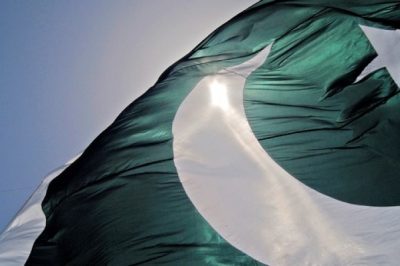The world has become a global village, especially after the advent of technology. Everything is connected in one way or another. People often get shocked by how much technology has penetrated their lives. Think of a product, for instance, and technology will start showing us hundreds of its variants on social media. This shows that either we accept the fact or ignore it, technology has captured almost all aspects of human life.
As far as political life is concerned, technology has brought a “Global Democracy” in the world. There are several drawbacks to it as well, but the main focus of the article is its impact on the political decisions of “sovereign” states.
Unlike the governmental systems that were the product of the pre-technological world, now the practice of isolationism seems impossible. After the Cold War, the capitalist bloc, led by the USA, won, and capitalism prevailed. One of the features of capitalism is that it cannot thrive in isolation. States must practice internationalism in order to be economically developed if they are following the capitalist model of economy.
Shedding light on Pakistan’s case, many are of the view that Pakistan can follow the right trajectory if and only if it practices isolationism. The question is, does Pakistan even have the option of practicing isolationism at its disposal? The answer is, fortunately, or unfortunately, no. Not only Pakistan but the states like China that claim to be the flag-bearers of communism could not ignore the reality.
Deng Xiaoping, Chinese President, historically said: “It doesn’t matter whether a cat is white or black, as long as it catches mice”. The statement was politically mature and entirely based on the philosophy of consequentialism that tells us “ends justify the means” or “any action, irrespective of the intention behind it, is justifiable if it bears the consequences that are efficient for serving our purposes”.
Also Read: Seven years of Aurat March – Pakistan’s battle for Women’s Rights
Deng was hinting at China’s economic model, which is practically capitalist. Despite claiming to be a communist state, China chose the capitalist economic model because it knows it is the only way to bring economic development and prosperity to the state.
Turning towards the domestic case, Pakistan being one of the states that has been engaged in international politics, take the example of joining capitalist bloc during Cold War by signing SEATO and CENTO, cannot opt for isolationism at this stage. Since its inception, Pakistan has relied on external political and economic assistance to push itself forward.
Also, the geo-strategic factor that, with or without national consent or interests, kept Pakistan relevant for external powers. In this situation, choosing isolation is not a rational decision, nor is it an option anymore.
Since, it has been rationalized that for Pakistan, tilting towards isolationist policies cannot prove to be something beneficial for the fate of the state, it should also be realized that internationalism cannot be practiced unless regional politics is taken seriously. For this matter, Pakistan really needs to be flexible towards the neighboring states and draw all the benefits without sacrificing any national interests.

The writer has done bachelors studies in international relations from university of Peshawar and is currently working as a research assistant in Public Relation services.







